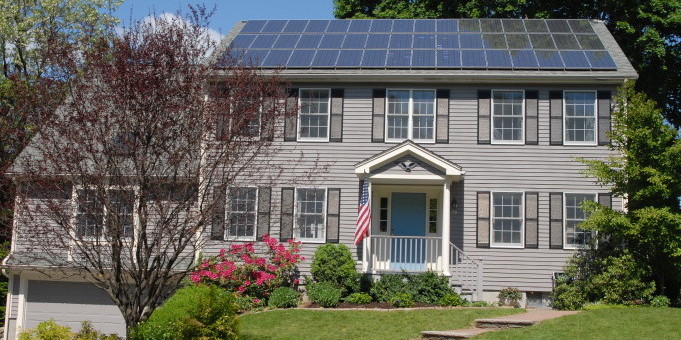Along with insulating your home, upgrading to a heat pump, and driving electric, going solar is one of the 4 top things you can do to help combat climate change at home. Imagine having your own source of renewable energy that can cover your electricity needs! But, what happens at night or when it’s cloudy?
Solar panels perform best on sunny days, but you can still produce solar power when it’s overcast or cloudy. While you can expect to generate approximately 10-25% of your system’s normal power output on cloudy days, you can still expect major savings on your electricity bill due to the high electric rates in our area. In fact, cities with variable weather conditions like Boston actually tend to be top cities for solar production.
At night when your solar system isn’t producing any power, 100% of your electricity comes from the grid. However, there are two ways to compensate for the decrease in output both on cloudy days and at night:
Net metering – Excess energy produced during the day gets sent back to the grid and the utility company will pay you for it in the form of “credits” on your electricity bill. Solar credits earned on sunnier days help pay for electricity used on cloudier days.
Storage batteries – When you install solar panels, you might opt to also install a solar battery that stores excess power generated during sunny days that can be used after dark or when it’s cloudy. These can also be helpful during a power outage.
Regardless of the weather, solar panels can still provide substantial benefits and reductions to your electricity bill. They require no maintenance, are usually warrantied for 25 years, and have a payback period of about 7-10 years–giving you many years of savings on your electricity bill. Check out Green Newton’s Solar FAQ page for more information on solar panels.
If you’d like to get in touch with installers about your options, you can sign up on EnergySage, to receive multiple quotes from local installers to compare side-by-side. Both the EnergySage calculator and custom quotes take current incentives, such as net metering, into account.



Recently on Twitter